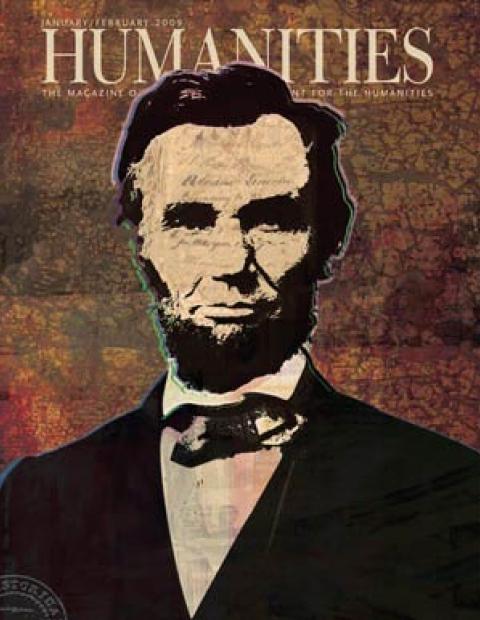Roosevelt began inaugural day by attending a brief service at St. John’s Episcopal Church. His old Groton School headmaster, Endicott Peabody, prayed the Lord to “bless Thy servant, Franklin, chosen to be president of the United States.” After a quick stop at the Mayflower Hotel to confer urgently with his advisers on the still-worsening banking crisis, Roosevelt donned his formal attire and motored to the White House. There he joined a haggard and cheerless Hoover for the ride down Pennsylvania Avenue to the inaugural platform on the east side of the Capitol.
Braced on his son’s arm, Roosevelt walked his few lurching steps to the rostrum. Breaking precedent, he recited the entire oath of office, rather than merely repeating “I do” to the chief justice’s interrogation. Then he began his inaugural address, speaking firmly in his rich tenor voice. Frankly acknowledging the crippled condition of the ship of state he was now to captain, he began by reassuring his countrymen that “this great nation will endure as it has endured, will revive and will prosper. . . . “The only thing we have to fear,” he intoned, “is fear itself.” The nation’s distress, he declared, owed to “no failure of substance.” Rather, “rulers of the exchange of mankind’s goods have failed through their own stubbornness and their own incompetence, have admitted their failure, and have abdicated. . . . The money changers have fled from their high seats in the temple of our civilization. We may now restore that temple to the ancient truths.” The greatest task, he went on, “is to put people to work,” and he hinted at “direct recruiting by the Government” on public works projects as the means to do it. He then touched on the notion of “balance” as he had heard the Brain Trusters discuss it, promising “to raise the value of agricultural products and with this the power to purchase the output of our cities.” He added a flourish of his own about the desirability of redistributing population from the cities to the countryside. He mentioned the need to prevent mortgage foreclosures, to regulate key industries, and especially to cut government budgets. He called for “strict supervision of all banking and credits and investments.” He stressed the primacy of domestic over international concerns. He obliquely hinted at inflationary measures in a pledge to ensure “an adequate but sound currency.” (One hard-money congressman complained that this meant Roosevelt was “for sound currency, but lots of it.”) He announced that he was calling a special session of Congress to address these issues. Then, guardedly but nevertheless ominously, he declared that if Congress should fail to act, “I shall ask the Congress for the one remaining instrument to meet the crisis—broad Executive power to wage a war against the emergency, as great as the power that would be given to me if we were in fact invaded by a foreign foe.”
From Freedom from Fear: The American People in Depression and War, 1929–1945 (Oxford University Press, 1999) by David Kennedy. Reprinted with permission of David M. Kennedy.

